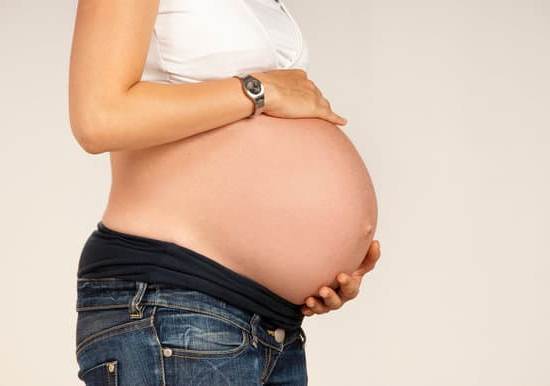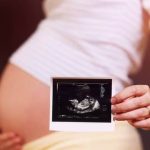How early can a pregnancy be detected? This question is of great significance for women who are trying to conceive or suspect that they may be pregnant. The ability to detect pregnancy at an early stage not only provides emotional reassurance but also allows for timely prenatal care and lifestyle adjustments. In this article, we will explore the various methods available for detecting pregnancy and the factors that can affect the accuracy of early detection.
Before a pregnancy test can accurately detect the presence of pregnancy hormones, there are early signs and symptoms that women may experience. These can include fatigue, breast tenderness, nausea, and changes in appetite. Understanding these early indicators is crucial for women who are keen to know whether they might be pregnant before taking a test.
One common method of detecting pregnancy at home is through the use of home pregnancy tests. These tests work by detecting the hormone human chorionic gonadotropin (hCG) in urine, which is produced during pregnancy. We will delve into how these tests work and how early they can provide accurate results in the following sections.
Signs and Symptoms
It is important for women to be aware of the signs and symptoms that may indicate pregnancy before they can take a pregnancy test. Being familiar with these early indicators can help them prepare for the possibility of pregnancy and seek medical advice if needed.
Missed Period
One of the most well-known signs of pregnancy is a missed period. If a woman’s menstrual cycle is regular and she experiences a significant delay in her period, it may be an indication of pregnancy. However, it is important to note that other factors, such as stress or illness, can also cause a missed period. Therefore, it should not be solely relied upon as a definitive sign of pregnancy.
Breast Changes
During early pregnancy, women may experience changes in their breasts such as tenderness, swelling, and darkening of the nipples. These changes are caused by hormonal fluctuations and increased blood flow to the breasts. While breast changes can occur due to other reasons as well, they are commonly observed in early pregnancy.
Nausea and Fatigue
Nausea, often referred to as morning sickness, and fatigue are common symptoms experienced by many pregnant women in the early stages of pregnancy. These symptoms can begin as early as two weeks after conception and may continue throughout the first trimester. They are caused by hormonal changes in the body and increased metabolic demands associated with early embryonic growth.
Understanding these signs and symptoms can help women recognize potential pregnancy before they take a pregnancy test. It is important to remember that individual experiences may vary, so seeking medical advice if there is any doubt about potential pregnancy is crucial. In the following sections, we will explore the different methods available for detecting early pregnancies and when they become accurate.
Home Pregnancy Tests
How Do Home Pregnancy Tests Work?
Home pregnancy tests typically involve collecting a urine sample and then using a test strip or container to detect the presence of hCG. The test will display results within minutes, indicating whether or not hCG has been detected. Some tests may use lines, symbols, or digital displays to convey results. It is recommended to read and follow the instructions provided with the test carefully in order to obtain accurate results.
Early Detection With Home Pregnancy Tests
Many home pregnancy tests claim they can accurately detect pregnancy as early as one day before a missed period. However, it is important to note that for most accurate results, it is best to wait until after a missed period before taking the test.
Testing too early may result in false negatives, where the test indicates no pregnancy despite being pregnant. Factors such as variation in ovulation timing and implantation can also affect how early hCG levels rise enough for detection.
Accuracy of Home Pregnancy Tests
The accuracy of home pregnancy tests can vary depending on factors such as how well instructions are followed, the sensitivity of the test, and individual differences in hCG levels. While false positives are rare, false negatives are more common when testing too early. It is always advisable for women who suspect they may be pregnant but receive negative results on home pregnancy tests to consult with healthcare providers for further evaluation.
Overall, home pregnancy tests provide a convenient way for women to check for early signs of pregnancy in the comfort of their own homes. Despite claims of early detection, waiting until after a missed period can increase accuracy and reduce the likelihood of false results. Seeking medical advice regardless of test results is crucial for proper prenatal care and support during this important time.
Blood Tests
The accuracy of blood tests for early pregnancy detection is very high, with quantitative hCG blood tests being the most accurate. These tests can detect pregnancy as early as 7-12 days after conception, which means they can accurately determine pregnancy before a missed period. Qualitative hCG blood tests can also detect pregnancy early on, although they may not be as sensitive as quantitative tests.
It’s important to note that while blood tests are highly accurate, there are still factors that can affect their results. For example, if the test is taken too soon after conception, it may not be able to detect the levels of hCG accurately enough to confirm a pregnancy. Additionally, certain medications and medical conditions can interfere with the accuracy of blood test results. Despite these potential limitations, blood tests remain a reliable method for early pregnancy detection.
| Blood Test Type | Earliest Detection Time | Accuracy |
|---|---|---|
| Quantitative hCG Blood Test | 7-12 days after conception | Very high accuracy; measures exact hCG levels |
| Qualitative hCG Blood Test | 10-14 days after conception | Detects presence of hCG; less sensitive than quantitative test |
Factors Affecting Early Detection
When it comes to early pregnancy detection, several factors can affect the accuracy of the results. One such factor is the timing of ovulation and fertilization. For women with regular menstrual cycles, ovulation typically occurs around day 14 of their cycle.
However, this can vary from woman to woman and even from cycle to cycle. If a woman ovulates earlier or later than expected, it can impact how early a pregnancy test can detect the presence of hCG (human chorionic gonadotropin), the hormone produced during pregnancy.
Implantation, which is the process of the fertilized egg attaching itself to the uterine lining, also plays a crucial role in early pregnancy detection. Implantation typically occurs 6-12 days after ovulation, but again, this can vary from woman to woman. If implantation occurs later than usual, it may delay the rise in hCG levels in the body, making it more challenging to detect a pregnancy in its early stages.
In addition to these factors, certain medications or medical conditions can also impact how early a pregnancy can be detected. It’s important for women to be aware of these factors when considering when to take a pregnancy test and interpreting the results.
- The timing of ovulation
- The timing and success of implantation
- Medications or medical conditions that may impact hormone levels.
It’s essential for women to familiarize themselves with these factors so that they can make informed decisions about when to take a pregnancy test and whether they should seek additional medical advice if they suspect they may be pregnant.
Early Pregnancy Detection Timeline
Pregnancy detection can be an exciting yet nerve-wracking time for women who are trying to conceive or suspect they may be pregnant. Understanding the timeline of when different pregnancy tests can detect a pregnancy is important in managing expectations and interpreting results accurately.
Home pregnancy tests are the most commonly used method for early pregnancy detection. These tests work by detecting the presence of human chorionic gonadotropin (hCG) in urine, a hormone that is produced during pregnancy.
Most home pregnancy tests claim to provide accurate results as early as the first day of a missed period, although some sensitive tests may be able to detect hCG levels earlier than this. However, it’s important to keep in mind that the accuracy of home pregnancy tests can vary depending on factors such as the concentration of hCG in the urine and proper usage of the test.
For even earlier detection, blood tests can be performed at a doctor’s office or laboratory. There are two types of blood tests that can determine pregnancy: qualitative hCG test which provides a simple yes or no answer about whether hCG is present, and quantitative hCG test which measures the exact amount of hCG present in the blood.
Blood tests can detect lower levels of hCG than urine tests, making them capable of detecting a pregnancy as early as 7-12 days after conception.
False Positives and False Negatives
When it comes to early pregnancy tests, it is important to be aware of the possibility of false positives and false negatives. These results can cause confusion and anxiety for women who are trying to determine whether they are pregnant or not. False positives occur when a pregnancy test erroneously indicates that a woman is pregnant when she is not, while false negatives occur when the test incorrectly indicates that a woman is not pregnant when she actually is.
Factors such as using expired or faulty home pregnancy tests, improper usage of the test, and certain medications can contribute to false results. Additionally, testing too early after conception can also lead to inaccurate results as the levels of hCG (human chorionic gonadotropin) may not be high enough to be detected by the test. It’s important for women to understand these factors in order to interpret their test results accurately.
To minimize the risk of getting a false result, it is advisable for women to carefully follow the instructions provided with the home pregnancy test. Using a reliable and reputable brand of pregnancy test can also help reduce the chances of getting inaccurate results.
If a woman suspects that she may be pregnant despite receiving a negative result on a home pregnancy test, it is recommended that she wait a few days and retest or consult with a healthcare professional for further evaluation.
Ultimately, understanding the possibility of false positives and false negatives in early pregnancy tests can help women make informed decisions and seek appropriate medical advice if needed. As such, it’s essential for women to be aware of these factors when using home pregnancy tests as an initial step in determining early pregnancy detection.
- Factors contributing to false positives and negatives: expired or faulty home pregnancy tests
- Importance of following instructions carefully when using home pregnancy tests
- The need for healthcare professional consultation in case of doubts about home pregnancy test results
Seek Medical Advice
In conclusion, the early detection of pregnancy is an important milestone for many women as it allows them to begin receiving prenatal care and make necessary lifestyle adjustments. Understanding the signs and symptoms of pregnancy, as well as the accuracy of different detection methods, can help women better navigate this early stage of their journey to motherhood.
Home pregnancy tests are generally able to detect a pregnancy as early as a few days before a missed period, while blood tests can provide even earlier confirmation.
It is important to note that various factors can affect the accuracy of early pregnancy detection, such as the timing of ovulation and implantation. This means that false positives and false negatives are possible with both home pregnancy tests and blood tests. Therefore, if a woman suspects she may be pregnant but receives a negative result on a home test, it is recommended that she seeks medical advice for further evaluation.
Ultimately, seeking medical advice from healthcare professionals is essential for confirming and monitoring a pregnancy. Regardless of the results obtained from home pregnancy tests or blood tests, consulting with a doctor can provide women with the guidance and support they need in this critical time. Early prenatal care plays a crucial role in promoting maternal and fetal health, making it imperative for women to seek professional medical advice upon suspecting that they may be pregnant.
Frequently Asked Questions
How Soon Will a Pregnancy Test Read Positive?
A pregnancy test can read positive as early as 10 days after conception, but for more accurate results, it is recommended to wait until the first day of a missed period.
How Early Can Pregnancy Be Detected in Urine?
Pregnancy can be detected in urine as early as 7-12 days after conception, depending on the sensitivity of the pregnancy test being used. However, waiting until a missed period is best for more reliable results.
How Soon Can You Tell if You Are Pregnant?
You can tell if you are pregnant as soon as 10-14 days after conception, but it’s best to wait until the first day of your missed period for a more accurate result. Early testing may not always be conclusive.

Welcome to my fertility blog. This is a space where I will be sharing my experiences as I navigate through the world of fertility treatments, as well as provide information and resources about fertility and pregnancy.





